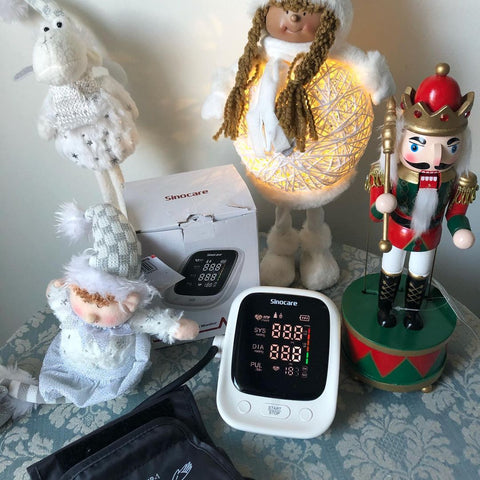
Of course, not all foods are created equal and some are very bad for the body while others are very healthy and positive for the heart. With this article we are going to talk in detail about some of the foods that are good for the heart and how they can be used in your daily diet.
Fresh herbs
Adding them as a condiment for other foods, instead of salt and fat, is a heart-healthy choice and adds flavor without harm. A delicious new way to eat smart.
Kidney beans
Tender beans are rich in heart-healthy nutrients, such as folate, antioxidants and magnesium, which can help lower blood pressure, and their fiber helps control cholesterol and blood sugar levels. Ideal to add to soups and salads, remember to rinse the canned beans to remove the salt present.
Red wine
A little red wine can be a heart-healthy choice. Resveratrol and catechins, two antioxidants found in red wine, can protect the walls of the arteries and also increase HDL, the good cholesterol. Remember that too much alcohol is bad for the heart, so avoid drinking more than one glass a day, and if you take medicines it is best to talk to your doctor first.
Salmon
A top food for heart health is salmon, rich in omega-3 or healthy fats that can reduce the risk of heart rhythm disturbances and lower blood pressure. They can also lower triglycerides and curb inflammation, so the American Heart Association recommends two servings of salmon a week. Cheaper alternatives to salmon can be tuna, mackerel, herring, lake trout, sardines and anchovies.
Extravirgin olive oil
This oil is rich in heart-healthy antioxidants, which can protect blood vessels. When olive oil replaces saturated fats (such as butter), it can help lower cholesterol levels. Try it on salads and cooked vegetables, or with bread, and for a better taste, buy cold-pressed oil and use it within 6 months.
Walnuts
A small amount of nuts a day can lower cholesterol and protect the arteries of the heart from inflammation. Nuts are rich in omega-3s, healthy fats called monounsaturated fats, plant sterols and fiber, and can replace bad fats, such as those from chips and cookies.
Almonds
A handful of almonds a day, or flaked almonds are ideal to consume with vegetables, fish, chicken and desserts, as they are full of plant sterols, fiber and heart-healthy fats. Almonds can help reduce "bad" LDL cholesterol.
Tofu
Eating tofu is a great form of vegetarian soy protein with minerals, fiber, and heart-healthy polyunsaturated fats. Chop the hard tofu, marinate, then grill or sauté in a pan, going slowly with the oil.
Oranges
Sweet and juicy, oranges contain fiber pectin that fights cholesterol and potassium that helps control blood pressure. According to one study, 2 cups of orange juice a day improved blood vessel health and also lowered blood pressure.
Chard
This dark green leafy vegetable is rich in potassium and magnesium, minerals that help control blood pressure. Chard also has heart-healthy fiber, vitamin A, and antioxidants such as lutein and zeaxanthin. Ideal to eat with grilled meats or fish.
Oat flakes
A bowl of oat flakes provides satiety, fights hunger attacks and helps keep blood sugar levels stable over time, making it useful for people with diabetes as well. Oat flakes can help the heart by lowering bad cholesterol (LDL).
Low-fat yogurt
Dairy products are very useful for bones, but they can also help control high blood pressure. Yogurt is rich in calcium and potassium, and to really increase calcium and minimize fat, choose low-fat varieties.
Cherries
Sweet cherries, sour cherries, dried cherries and cherry juice, are all good and rich in antioxidants called anthocyanins. They are believed to help protect blood vessels. Use dried cherries together with cereals, batter for muffins, green salads and rice: all absolute goodness.
Blueberries
Blueberries are simply great when it comes to nutrition, as they possess anthocyanins, which are antioxidants that help blood vessels. These antioxidants give the berries their dark blue color. Blueberries also have fiber and more than a handful of other great nutrients. Blend some blueberries to get a sweet sauce that you can use to season other delicacies.
Vegetables with dark green leaves
Green leafy vegetables are full of vitamins and minerals, and they are also rich in nitrates, a substance that helps open blood vessels, so that oxygen-rich blood can reach your heart. The vegetables that belong to this group are lettuce, spinach, arugula, chard, and to enhance the flavor you can cook the vegetables in a pan with olive oil.
You can measure your heart rate and blood pressure by using our Sinocare blood pressure monitor to keep track of your health situation.
Buy Here: Sinocare Blood Pressure Monitor Upper Arm AES-U181

Note: All information on Sinocare blog articles is for educational purposes only. For specific medical advice, diagnoses, and treatment, consult your doctor.
